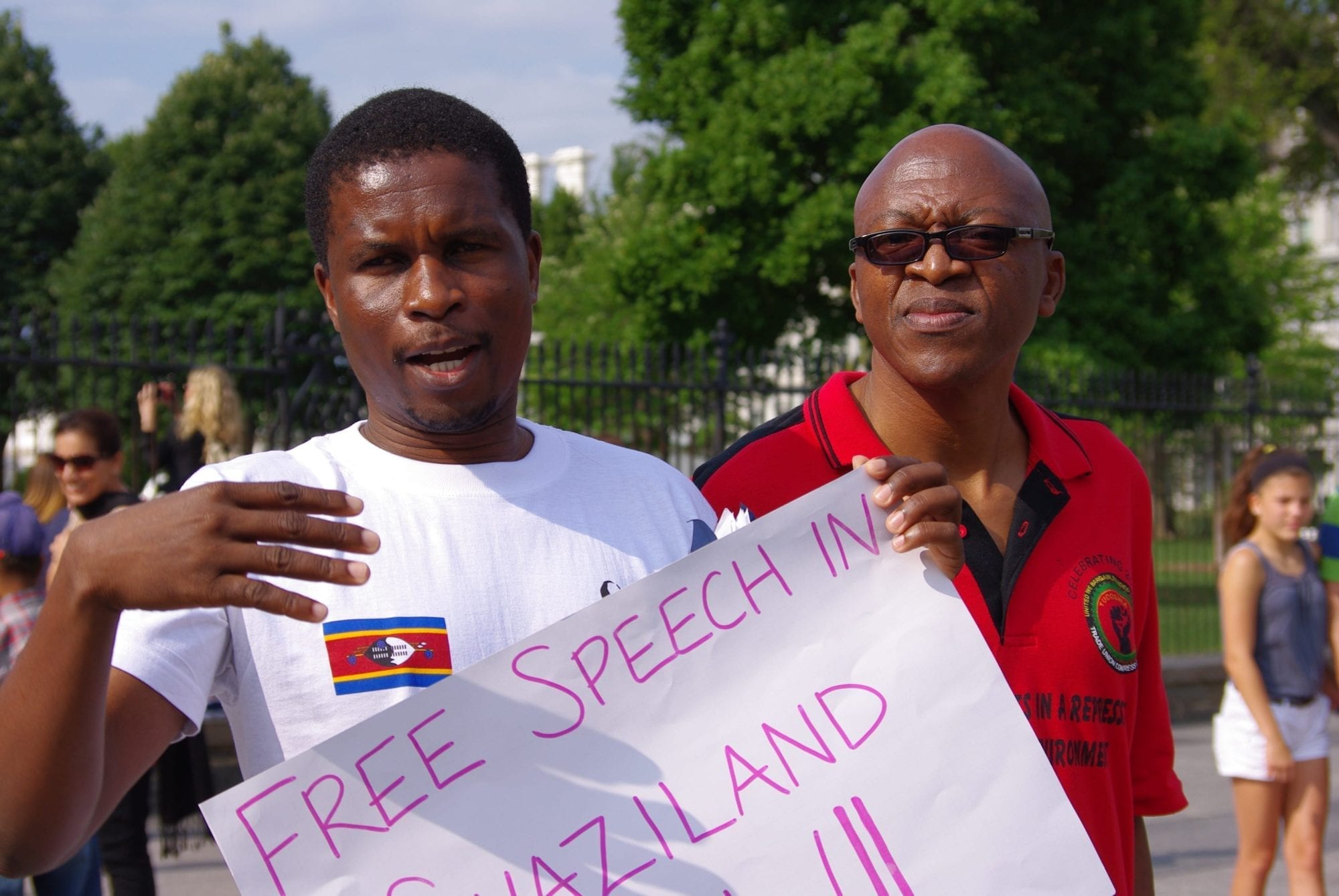
Sep 2, 2014
A panel of federal judges in Mexico dropped all criminal charges against Napoleón Gómez Urrutia, president and general secretary of the National Mine and Metal Workers Union (Los Mineros), freeing him to return to Mexico from Canada where he has lived in exile.
Gómez Urrutia, who was removed as president of the 250,000-member union by Mexican authorities and replaced with a company-backed rival, was repeatedly threatened and forced to leave Mexico in 2006. He also was charged with embezzling $55 million in union funds, an accusation struck down multiple times by the country’s courts. Following the August 28 decision, Gómez Urrutia said through Los Mineros that he plans to return to Mexico by the end of September.
Los Mineros said in a statement that “the next step will be to meet with the highest levels of government” so that Gómez Urrutia and Los Mineros can “contribute, in a framework of mutual respect, to the development of the industry and the defense of the rights of the workers and the well-being of their families.”
Days before he was removed as Los Mineros leader, an explosion at Grupo Mexico’s Pasta de Conchos mine trapped 65 mineworkers. Gómez Urrutia said the company and Mexican government only made minimal efforts to rescue the trapped men. The search for survivors was ended and the mine closed after five days, leaving the men entombed and their families waiting outside.
Prior to the explosion, Los Mineros had repeatedly cited dangerous working conditions and the smell of gas at Pasta de Conchos. After the company abandoned the men and sealed the mine, Gómez Urrutia publicly accused the mining company and the Ministry of Labor of “industrial homicide.” In response, the government filed criminal charges against Gómez Urrutia and other union leaders, froze the union’s bank accounts, assisted employers to set up company unions in Los Mineros-represented workplaces, declared the union’s strikes illegal and sent in troops to suppress them.
In 2011, Gómez Urrutia received the AFL-CIO George Meany-Lane Kirkland Human Rights Award, with AFL-CIO President Richard Trumka calling Gómez Urrutia a “truly courageous man who has shown us how difficult and how important it is to be an independent leader of a democratic union.” He also won the 2014 Arthur Svensson Prize granted to individuals or organizations working to promote trade union rights and/or strengthen trade union organizing around the world.
The AFL-CIO, the United Steelworkers and IndustriAll were among union organizations worldwide backing Gómez Urrutia and providing an international platform to champion his innocence.
Gómez Urrutia described the struggle by Mexico’s mineworkers for safety and health protections, decent wages and improved working conditions in his 2013 book, Collapse of Dignity, The Story of A Mining Tragedy and the Fight Against Greed and Corruption in Mexico. Collapse of Dignity details the February 2006 mine disaster and the subsequent attacks on him and Los Mineros. Most of the victims were temporary contractors with no training and insufficient oxygen supplies.

Aug 15, 2014
U.S. trade benefits for Africa—known as the African Growth and Opportunity Act (AGOA)—provide key economic support for countries such as Swaziland, according to Vincent Ncongwane, secretary general of the Trade Union Confederation of Swaziland (TUCOSWA).
Yet some in the Swazi government are falsely accusing Ncongwane and human rights lawyer Sipho Gumedze of taking a stand against AGOA benefits for Swaziland when they were in Washington, D.C., last week as part of a delegation of 40 African trade union leaders. In June, the U.S. government took the rare step of suspending AGOA trade benefits for Swaziland, citing the Swazi government’s systematic violations of fundamental worker rights.
“We maintain our position that we want the country to regain eligibility but it must meet the benchmarks,” Ncongwane said today in a press statement. “As we stated in the U.S. and heard clearly stated to us there, (the United States) does not wish to keep Swaziland outside the AGOA program, but eligibility remains for the (Swazi) government to take the necessary steps. It has been emphasized over and over again that all (the Swazi) government has to do is to meet the requirements of the benchmarks.”
While in Washington, Ncongwane and Gumedze, both internationally respected labor and human rights advocates, the Swazi Prime Minister Sibusiso Dlamini reportedly told lawmakers “you must strangle them” upon their return. The U.S. State Department condemned the threat, saying in a statement:
“The United States is deeply concerned by the threatening remarks made by Swaziland Prime Minister Sibusiso Barnabas Dlamini toward Swazi labor and civil society leaders who participated in the U.S.-Africa Leaders Summit in Washington this week. Such remarks have a chilling effect on labor and civil rights in the Kingdom of Swaziland.”
“The comments made today by Prime Minister Dlamini are a clear threat to the human rights community,” said Santiago Canton, Director of RFK Partners for Human Rights. “This type of language is another indication that Swaziland’s authorities do not, in any way, respect the basic human rights of its people.”
Following the statements from the United States, and international outrage within the global labor and human rights communities, Dlamini later reportedly retracted his statement.
When the United States suspended AGOA benefits in June, U.S. Trade Representative Michael Froman, said, “We have made our concerns very clear to Swaziland over the last several years and we engaged extensively on concrete steps that Swaziland could take to address the concerns. We hope to continue our engagement with the Government of the Kingdom of Swaziland on steps it can take so that worker and civil society groups can freely associate and assemble and AGOA eligibility can be restored.”
The 2014 U.S. State Department human rights report cites serious human rights violations in Swaziland, including arbitrary or unlawful killings by the government or its agents; severely restricted freedom of assembly, including violence against protestors; jailing of trade union leaders; the deregistration of TUCOSWA and the banning of strikes.
A recent TUCOSWA survey of more than 400 textile workers in Manzini, Swaziland, found that workers in the textile sector are subject to harsh and sometimes abusive conditions, many of the country’s labor laws are routinely violated by employers, and union activists are targeted by employers for punishment.
In July, ITUC General Secretary Sharon Burrow said although Swaziland was aware of the potential withdrawal of U.S. trade benefits, “the government made no genuine effort to fulfill the eligibility criteria by May 15, 2014, the deadline set by the U.S. Trade Representative. The inaction is evidence of the government’s complete disregard for the rights and livelihoods of workers.”
Aug 12, 2014

Solidarity Center Africa Regional Program Director Imani Countess Credit: Tula Connell
The U.S.-Africa Summit in Washington, D.C., last week stood apart from similar trade and investment meetings held by China or by the European Union because African union leaders, representing millions of working people, made their voices heard, said Imani Countess, Solidarity Center regional program director for Africa.
“Any U.S. conversation discussing economic development, trade and investment in Africa couldn’t happen without … people understanding how foundational decent work, labor rights … are to overall growth and economic development,” Countess said, speaking on RadioLabour.
The Solidarity Center and the AFL-CIO facilitated meetings, held in tandem with the U.S.-Africa Summit, that included nearly 40 union leaders from 11 countries to highlight the need for good jobs as a priority in trade and investment decisions.
“As one is looking at promoting investment in Africa, that investment has to be pro-employment, as opposed to the continued emphasis and support for growth that is benefiting a very small minority,” Countess said.
Listen to the full interview.
Aug 11, 2014

Joel Odigie says poverty and inequality are worsening in Africa, despite the continent’s economic growth.
“Africa rising” was the catchphrase buzzing around Washington, D.C., last week, as African heads of state met for a three-day summit with U.S. government and private business.
But Joel Odigie, coordinator of human and trade union rights for the International Trade Union Confederation-Africa, says working people are not benefiting from the continent’s economic growth.
“In reality, there is an economic growth in Africa that is for the 1 percent. Poverty continues to increase, inequality continues to widen,” he said,” speaking on RadioLabour. “The question of investment and trade should be the issues of how we are able to use that to address some of these concerns.”
Odigie was among 40 African union leaders meeting in Washington, D.C., to highlight the need for decent work—which includes good wages, safe working conditions and the freedom to form unions and collectively bargain—gender equality and human rights.
Listen to the full interview
Aug 8, 2014

Kwasi Adu-Amankwah, ITUC-Africa general-secretary, highlighted the need for jobs and worker rights this week in Washington, D.C. Credit: RadioLabour
During this week’s U.S.-Africa Summit with heads of state in Washington, D.C., more than 40 African trade union leaders took part in parallel meetings to call on U.S. and African leaders to adopt a decent work agenda for trade and economic growth.
In interview with RadioLabour, Kwasi Adu-Amankwah, general-secretary of the International Trade Union Confederation-Africa, discussed the focus on decent work
“Decent work … refers to the need for employment, but when people are employed, they have to have rights,” Adu-Amankwah said.
“Employment is one pillar of decent work, and the existence of worker rights also is another pillar,” Adu-Amankwah said, citing social protection as the third part of a decent work agenda.
“Then there is a question of social dialogue—when people are at work, they must have rights to speak out. So they must be able to organize and to bargain collectively.”
Adu-Anamkwah also spoke at the official Africa Summit civil-society side event, “Promoting Decent Work: Priorities for U.S. and African Leaders, Civil Society and Private-Sector Shareholders.”
Listen to the full interview.





